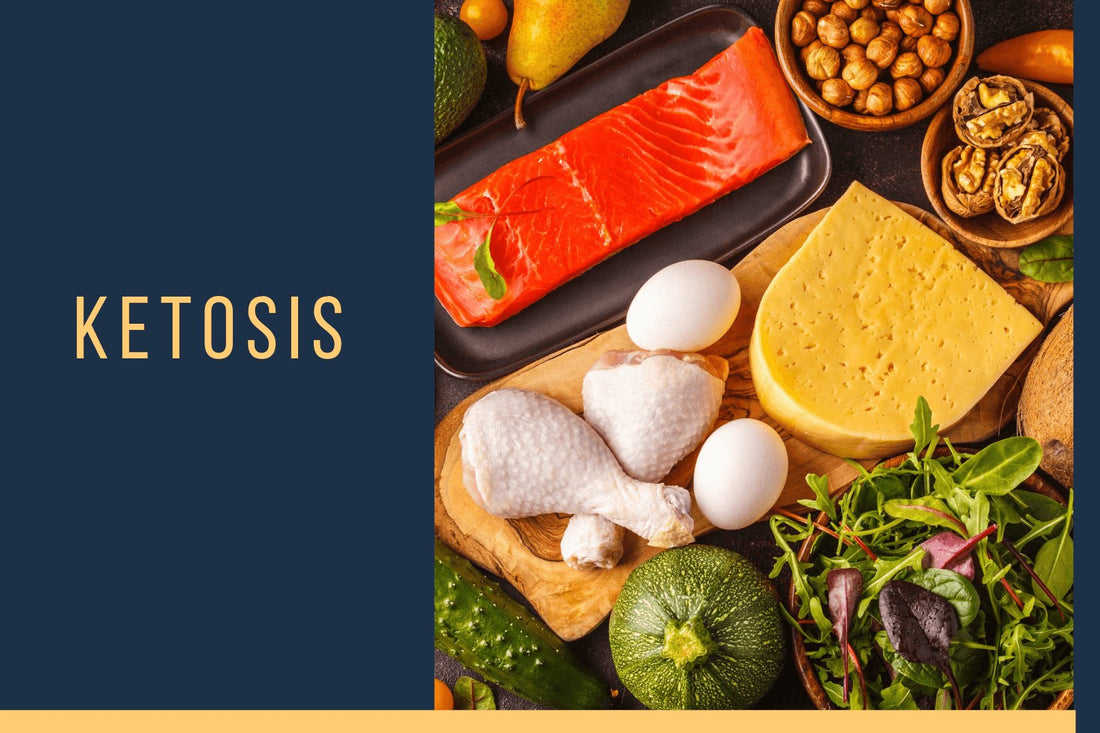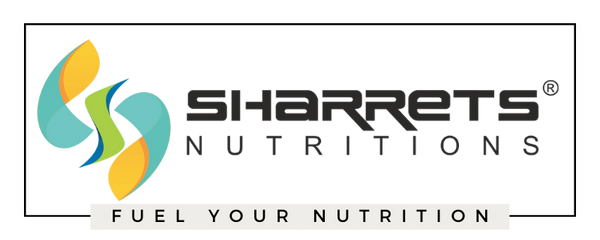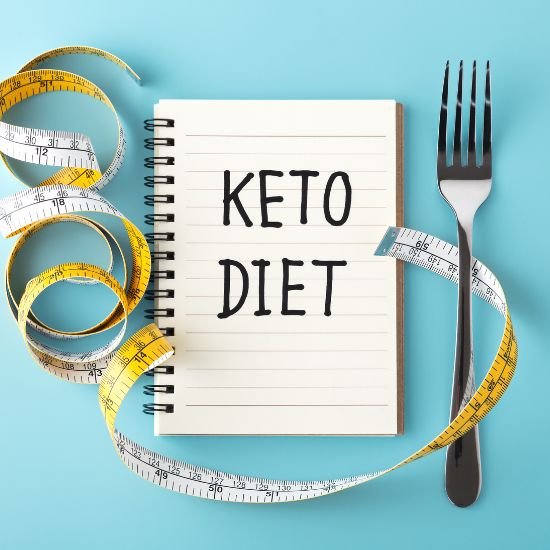
Ketosis - it's benefits & misconceptions.
Share
Most people have heard they should eat a low-carb diet for weight loss and/or better health, but the word “ketosis” might have some tilting their heads in confusion wondering what’s so special about this funny term.
Don’t worry; we’ve got all the details you need to understand the process of ketosis in the body — and more importantly, how you can implement it in your own life !
WHAT IS KETOSIS ?

Let’s cover some easy and simple facts about the energy and body , Before you can fully understand ketosis. The primary source of energy in the body — which normally fuels every function of the body, from brain cognition to athletic performance — is glucose.
You typically get glucose from your diet by eating carbohydrates like:
- sugar
- bread
- grains
- Beans and legumes
- fruit
- starchy vegetables
These carbs either turn immediately into glucose in the body or are stored as glycogen in the body to be used as glucose later. However, sometimes the body will have a low supply of glucose, also known as blood sugar. This could be because a person is eating a low-carb diet.
When there is no longer enough glucose for the body to use, it turns to an alternative source of energy: your fat stores. It takes the fat stores and the liver breaks them down to make glucose. And when this happens, elements known as ketones are formed as a byproduct of the process.
Ketosis is a normal metabolic process. When the body does not have sufficient glucose for energy, it burns fats stored instead ; this results in a formation of acids called ketones within the body.
There are 3 main types of ketones that form in our body during Ketosis :
- Acetate
- Acetoacetate
- Beta-hydroxybutryate (BHB)
Once ketones are formed, your body can use them as alternative fuel.
KETOSIS FOR WEIGHT REDUCTION
Apparently the most widely talked about use for ketosis right now is utilizing it for weight reduction . Perhaps , the keto diet is built around creating ketosis in the body.
There are several benefits you can experience when your body enters ketosis:
Breakdown of fat stored in the body.
A low-carb diet, which is used to facilitate ketosis, is often preferred for weight loss because it can encourage the body to start burning its own fat stores directly for energy.
Less hunger.
Besides helping you burn fat, going into ketosis can also make you feel less hungry . This makes it easier to stick to a ketogenic diet because it’s not necessarily required to count calories for weight loss. You can better trust and listen to your body’s own hunger signals.
Blood sugar regulation.
The normal diet program has people eating an plethora of refined carbs & sugars that continue to spike their blood sugar levels, which can keep you feeling starved and also develop fat storage of the excess sugar intake.
But ketosis can help stabilize blood sugar in someone who is focusing on lots of good fat, protein sources, healthy vegetables without starving themselves.
HOW TO KNOW THAT YOU’RE IN KETOSIS

In order to enter into ketosis, you need to be eating a keto diet that usually comprises of 20-50 g carbs each day, a number that can vary per person. To do this means exclude high-carb foods from your day intake :
- Candy
- Sugar-laden soft drinks
- Processed grains
- Any other sources of refined sugar
You’ll also want to cut down on your intake of even carbs that are whole foods-based, such as:
- Fruits
- Legumes
- Whole grains
- Potatoes and other starchy vegetables
MISCONCEPTIONS ABOUT KETOSIS
It’s important to note that ketosis has been unfairly lumped into the same category as starving, which makes those who are uninformed assume it’s unhealthy and bad for the body. But there’s a big difference:
During starvation, the body pulls from muscle stores to fuel the body, thus reducing lean muscle mass. Earlier very-low-carb diets, like the original Atkins diet, have been criticized for their extremely low carb intake — less than 20 grams a day — for this reason
During ketosis, carbohydrate intake is still restricted but at higher levels, between 20-50 grams a day, and you’re eating adequate amounts of protein.
This way, someone in ketosis can still receive the necessary nutrition and fiber from lots of vegetables while staying within a low carbohydrate intake level.
Basically, ketosis allows your body to continue functioning properly, both physically and mentally, even when there is an absence of carbohydrates or not enough calories being ingested.
This is a brilliant function of the body that allowed our ancestors, who didn’t have the great access to food we do today, to thrive for prolonged periods of time without glucose. Now, we’re still able to use that advantage for increase fat burning and improving health.
Ketosis Vs. Ketoacidosis
People also often confuse ketosis with diabetic ketoacidosis (or DKA), and it’s important to understand they are very different.
DKA occurs when the amount of ketones in the blood is extremely high and can turn the blood acidic . Diabetics can get DKA if they don’t take enough insulin, become dehydrated from not drinking enough fluids, or become hurt or sick. Other causes may be starvation, alcoholism, or an overactive thyroid.
Symptoms of DKA may include:
- Nausea or vomiting
- Excessive urination or thirst
- Hyperglycemia
- Fruity-smelling breath
- Gasping or breathlessness
Ketoacidosis is a dangerous state that can be deadly if not treated, and it’s not the same as nutritional ketosis — that we’re talking about here — which is a safe state achieved through a healthy low-carb diet.
Ketosis is a normal part of metabolism in which your body is using ketones efficiently and safely, and only producing a low level of them in the blood.
HEALTH BENEFITS OF KETOSIS
Besides promoting a healthy weight, ketosis can also be beneficial for mental and physical performance.
Ketosis for Brain Health & Energy
Although glucose is the preferred form of energy for the body, a large part of our brains can also ketones as fuel for mental performance on a low-carb ketogenic diet. Plus, your body can also provide internal-made glucose to the brain (through glucogenesis ) during ketosis.
Ketosis has also been used to help control seizures in children with epilepsy by preventing neurotoxicity from an overabundance of carbs. It’s also been shown to have benefits for people with Parkinson’s and Alzheimer’s diseases and type I and II diabetes.
Ketosis for Athletic Performance
During long periods of exercise, the body uses both what you’ve recently eaten and stored glycogen to power you through. But when those glycogen stores have been used up and you still need fuel, the body must turn to protein or fat for more energy. This is not a very efficient process — unless the body has adapted to being in a ketogenic state.
Athletes and those who have long workouts may see improved output from ketosis because it allows fat to be burned more quickly when the body needs more energy.
Ketosis has many benefits for the body in terms of weight loss, health, and metabolism. If you’re interested in using the ketosis process for your own benefit, use this as a guide to get you started. And keep in mind that getting your body adapted to ketosis can take a few weeks, so don’t get discouraged and give yourself time to see results ! Sources:
https://www.ncbi.nlm.nih.gov/pubmed/25402637 http://www.webmd.com/diabetes/type-1-diabetes-guide/what-is-ketosis#1 http://www.medicalnewstoday.com/articles/180858.php#the_process_of_ketosis http://www.diabetes.co.uk/diabetes-and-ketones.html https://www.diabetesdaily.com/blog/2014/11/dka-nutritional-ketosis-are-not-the-same/ https://www.ncbi.nlm.nih.gov/pubmed/19227486/ https://www.ncbi.nlm.nih.gov/pubmed/9832569 http://ethos.bl.uk/OrderDetails.do?uin=uk.bl.ethos.581361 https://www.ncbi.nlm.nih.gov/pmc/articles/PMC2367001/
















